#Mindfulmonday Venezuela's Process: How we found our path to Peace in the midst of Crime and Repression
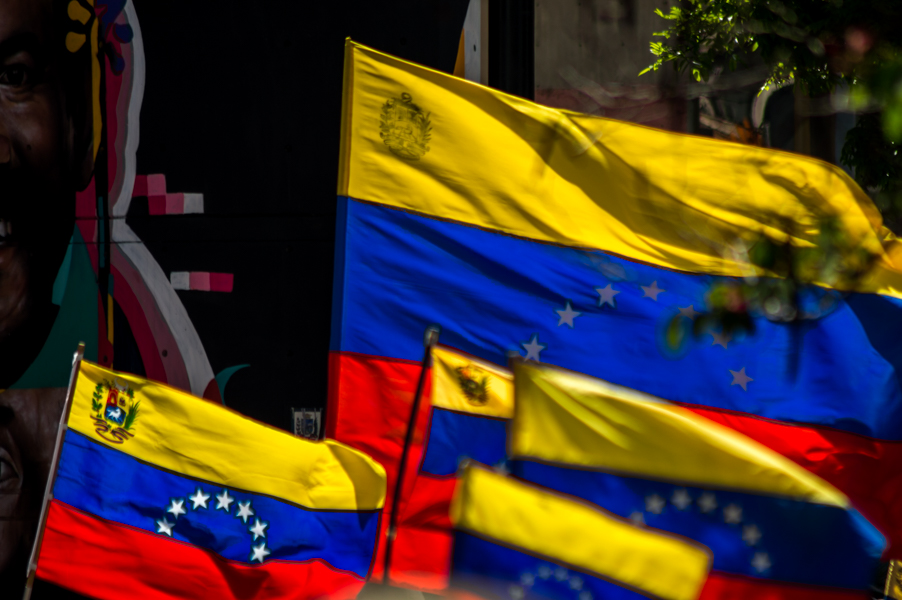
Venezuela, my homeland, has seen a tremendous amount of violence in its history, from the days of the Spanish Conquest and the following War of Independence, through a gruesome 4-year civil war that involved all the major powers in the nascent country, through tyrannical regimes and periods of great social upheaval boosted by corruption, greed and mismanagement of the land's material wealth, particularly oil.
Political abuses and crime have always been a staple of our society. You'd be hard pressed to find anyone who hasn't lost someone to murder, who hasn't been robbed of their possessions by thugs or even security bodies, or who has no friends or relatives unjustly imprisoned for dissenting. Historic debts always come back to bite us, and blood spilled encourages resentments which in turn feed the darkness in a vicious cycle of retribution and rancor.
Lies breed lies, oppression promotes oppression, and currently this land is facing a humanitarian emergency of colossal proportions, utter economic collapse in a 7-year long recession, brutal hyperinflation, forced migrations that now affect the entire Latin American region, the outbreak of all sorts of diseases (COVID-19 is merely the newest addition, the list is quite long), malnutrition, country-wide failures of public services such as electricity, healthcare and water supply; the legacy of past mistakes and old wounds, festering under the influence of a 21-year long criminal regime that infested the entire system, let foreign terrorist organizations into our borders, engaged in drug trafficking and severe human rights violations, and ruined the nation to the core.
And yet, here we are. Even three years ago, it would've been impossible for me to say if I'd still be living here today, and the same could be said of many who have remained either by choice or by the inability to leave. We've been through a lot, there have been times so dark and hopeless that any descriptions or explanations would fail to convey the horror, the sorrow that we've felt.
This is the story of how we've managed to get through the violence, especially in the past six years, considering all the other hardships we've been suffering; but more specifically, the story of how I've managed to regain hope, to find reasons to love this country again despite everything, and to feel free and happy even now.
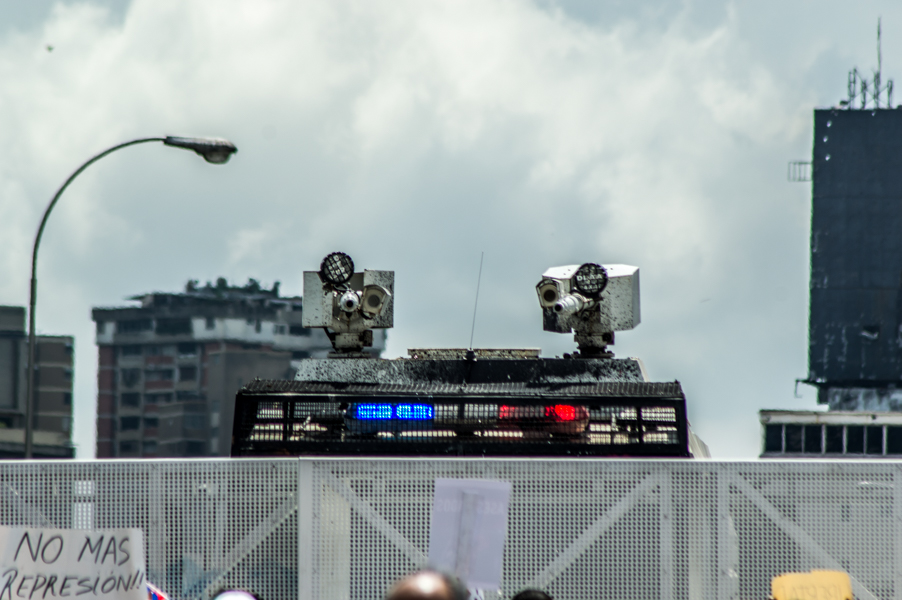
Uprisings, riots and protest
Venezuelans have been protesting for as long as the current regime has been in power, some times more than others. The late Hugo Chávez was elected to office in 1998, changed the Constitution in 1999 and by 2005, he had complete control of all institutions. It was really hard to stand up to him, but we tried anyway. We endured a failed Civilian-Military Coup and then a terrible Oil Strike that actually ended up strengthening his rule. Some opposition leaders attempted to rally public support to little effect in the following years. His word was law and he had unprecedented grip over all matters of State, cruising from one crushing triumph to another; he fed the fires of old divisions even within the core of the Venezuelan family, and publicly opposing him was tantamount to prison without trial. I can't count how many times I clashed with friends for political issues in those years. Then, in 2012, he won his last election, flew to Cuba to die and left his anointed successor, Nicolás Maduro, in charge of everything.
When Maduro came to power, things changed rapidly for the worse. A brutish man at the head of a cruel, deeply corrupt but still functional criminal organization, he not only lacked the swaying discourse of his predecessor, but also his charisma, focus and political acumen; what he didn't lack was a knack for violence, total access to security forces and a bunch of other irregular armed groups called colectivos, militia-like bodies spread across the country, particularly in poor neighborhoods.
As the political and social situation in the country deteriorated toward the end of 2013, people started to make stronger rallying calls for street protests against Maduro's government, and eventually, in February 2014, Leopoldo López, a key opposition leader, was arrested. That's when the regime really started to bear its fangs and claws, killing people in the streets by the dozens and arresting them by the hundreds. Many of the citizens jailed in those days remain in prison and have experienced all sorts of torture and humiliation. The dead remain without justice despite the demands of their relatives and rights defenders before national and international institutions.
That was also when the first serious riots began, partly fueled by the anger that had been seething at the core of society for the past 15 years and even longer, but also by the actions of the aforementioned irregular groups, which infiltrated peaceful demonstrations to sow chaos and damage their image before the media, giving the regime reason to increase the volume of repression.
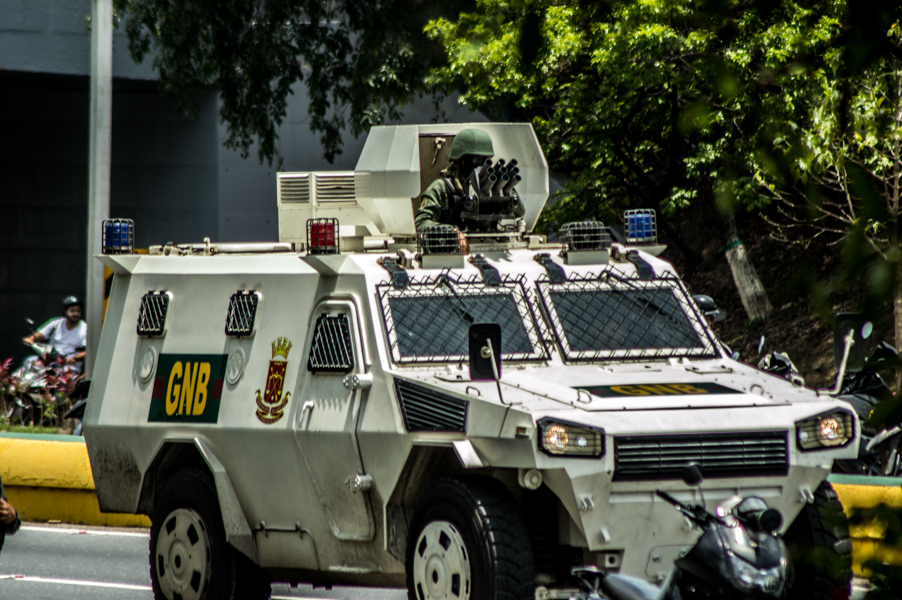
2015 and 2016 were mostly dominated by the political arena. Protests didn't stop, and they became more widespread throughout the nation, now including lootings and horrific lynchings which I had to research and report on for my job in a local news outlet. The mayhem was terrible and the opposition once again tried to rally support, this time for a Recall Referendum against the President, which failed dramatically, further breaking people's spirit. On top of that, demonstrations were drowned by a much more cohesive repressive response while the focus of the fight moved to the halls of power. Fortunately, it was in those years that I resolved my own personal issues and found ancestral medicines such as Ayahuasca and Rapé, which allowed me to see the situation from a much more spiritual point of view.
In 2017, the protests gained renewed relevance and became far more violent. People were desperate, the situation was much worse than three years prior and there was no end in sight. The regime's communication apparatus did all in its power to discredit these demonstrations, which were led directly by opposition figures, and the killings/arrests were unprecedented, far more obvious and gruesome. Security forces and armed groups besieged residential neighborhoods with assaults that lasted for hours. The repression was so heartbreaking that we were depleted of energy and spirit-drained by year's end.
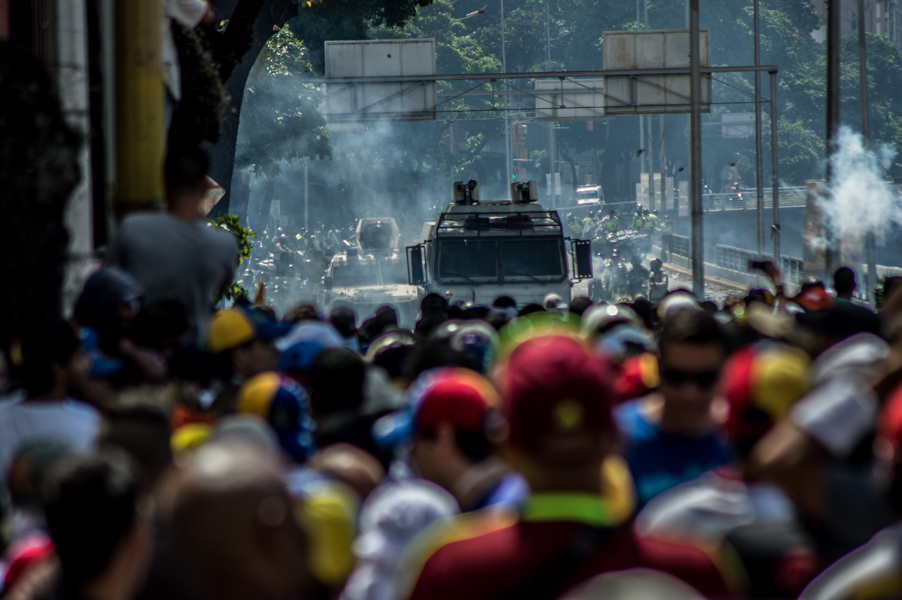
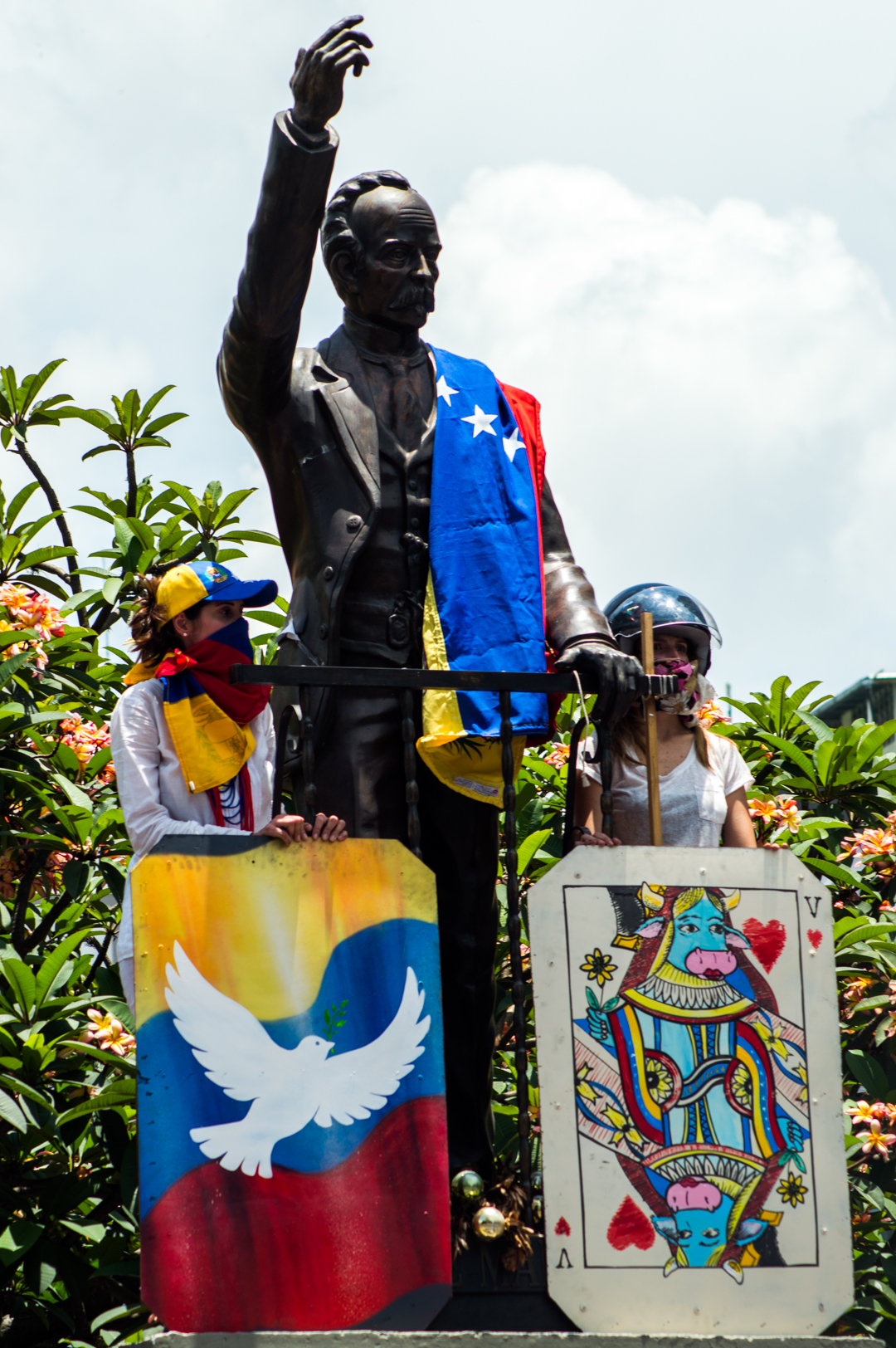
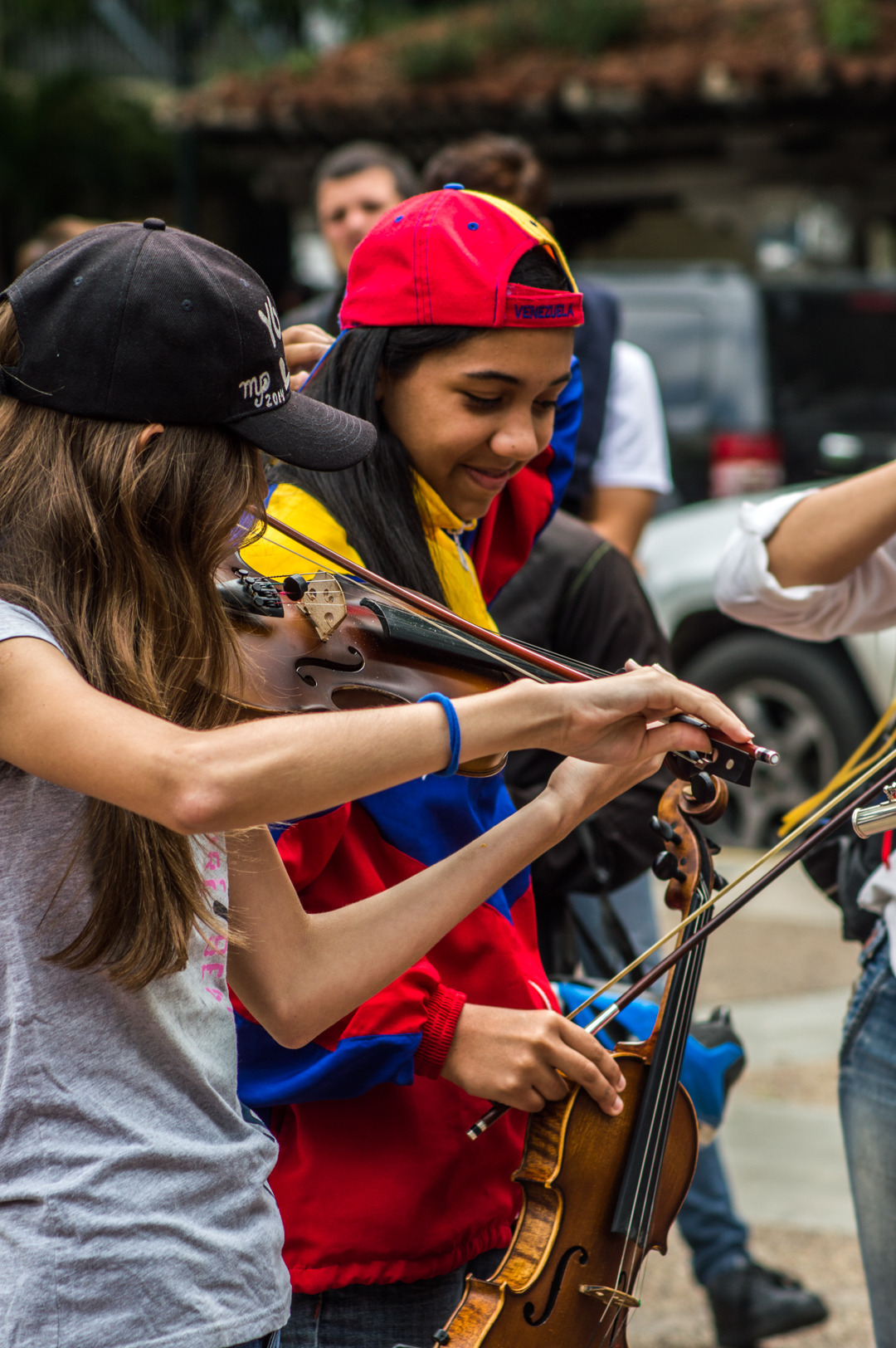
The path to non-violence
Peaceful demonstrations are the way to go against tyrannical governments, because their violence stands in stark contrast with unarmed protesters chanting and carrying banners expressing their demands. But getting there is a long, usually painful process, and all the rage must be purged first from people's systems. In constant contact with the news, I began to see that everything we'd been going through had been necessary. All the pain, the harrowing, the death and degradation had been leading us to a point where we could bargain with our own sadness and shadow.
2018 was fraught with social conflict, but the regime was on the hunt now, with a newfound blood-thirst meant to completely squash dissent and get rid of political opponents at any costs. In the process, they started to reveal their true colors to the international community, the world was really starting to take note. Meanwhile, we endured as best we could the onslaught of this deeper repression and also the failure of the entire country. We were all licking our wounds and had no appetite for regime-toppling discourse, but although hopelessness was at its highest point in those days, we were not declaring defeat just yet. Most of my friends had already departed to other countries by then, but my spirituality was burgeoning and granting me a growing sense of empowerment and joy that I'd never felt before, which allowed me to live through those dark times with relative ease.
Then came 2019, Juan Guaidó gained prominence and his discourse was far more level-headed, albeit still too hopeful for the actual situation (which he later acknowledged, something that no other leader had done before.) That's when our protests became decidedly non-violent and any riots and crimes could be squarely blamed on regime lackeys and hardcore loyalists. At last, all of the rage had subsided and instead, the call for justice and freedom took the fore, as the ruling party's capabilities and its international standing started to take their most serious blows.
Now, its enemies depleted or unassailable, Maduro and his cronies have turned their poison toward their own ranks, speeding a process of decline that's nearly complete. This year, we're merely waiting patiently for the end of this story, adapting to new realities. As for me, I've increasingly focused my efforts on training my Magic and Shamanism, and even stopped working for the news. Through this training, I've gained profound insight on the avatars we've gone through, and I'm absolutely certain that the rebirth of this nation is at hand. I'm glad that I'm here to see it firsthand, for it'll be a Wonder to us and the world.

This is my entry for the contest on how to deal with and heal the effects of violence, in this case, of a political/social nature. My friends, if you're facing political upheaval and violence is taking on a darker turn in your own countries, I have no easy solutions for you, and I honestly tell you that you have a long road ahead, it will be difficult and dispiriting at times, and you may be confronted with fanaticism and ignorance even from people you love. You may see much anguish and feel great dread, but you can work on your emotions and your spirituality; you can seek mindfulness and be more careful regarding the news you consume. It will pass, be sure of it, and the world that's coming is much freer, much more beautiful and open than the one we're leaving behind.
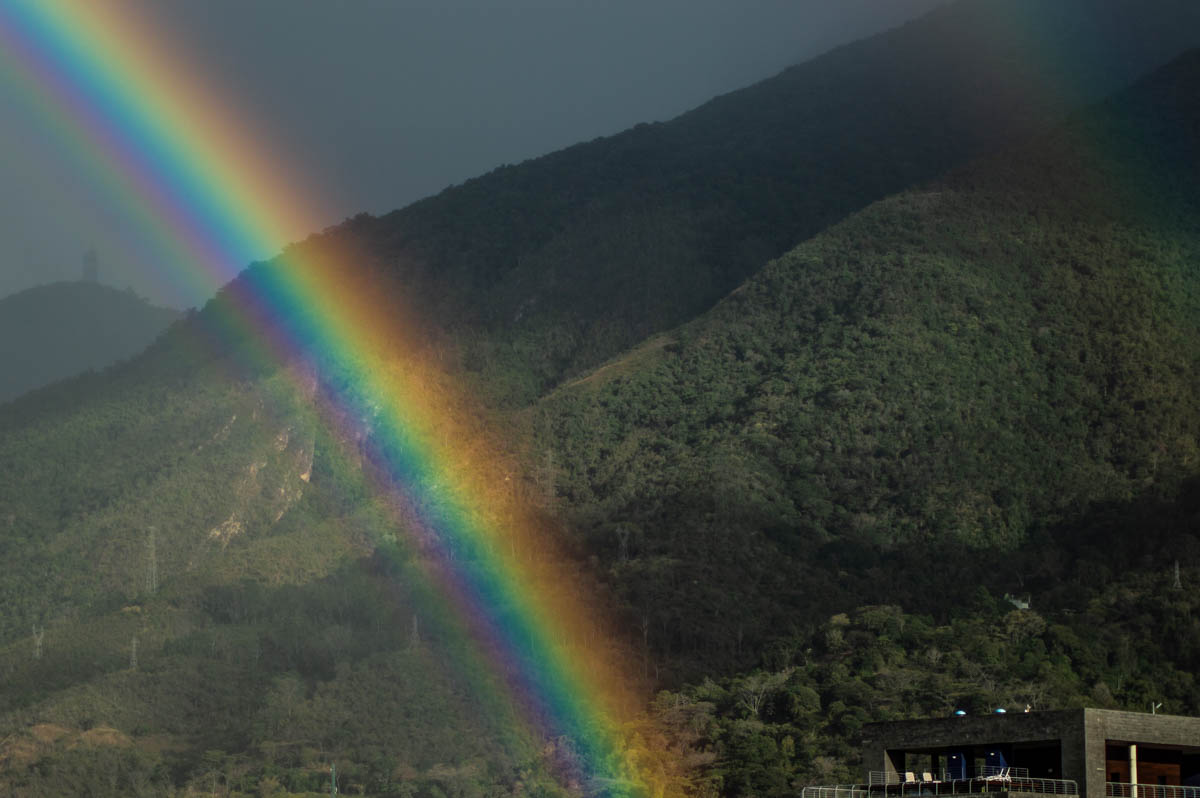
Comments
You can login with your Hive account using secure Hivesigner and interact with this blog. You would be able to comment and vote on this article and other comments.
No comments